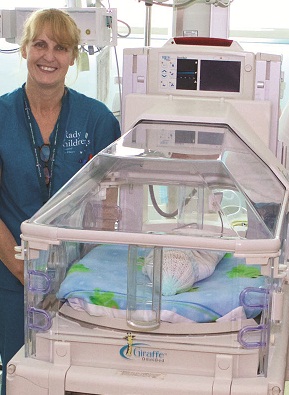 The Neuro-NICU (neonatal intensive care unit) Program aims to prevent newborn brain injuries through medical care and detecting and preventing neurological problems.
The Neuro-NICU (neonatal intensive care unit) Program aims to prevent newborn brain injuries through medical care and detecting and preventing neurological problems.
Founded in 2012, the Neuro-NICU program was one of the first of its kind in the country; currently, it is one of a select few providing the highest level of specialized care for neonates at risk for neurological injury. Many of our Neuro-NICU patients are transported to Rady Children’s by our own Neonatal Transport team from other hospitals in the Southern California region.
Team
Our multidisciplinary team consists of board-certified neonatologists, neonatal neurologists, pediatric surgeons, neuroradiologists, specially trained neonatal intensive care unit (NICU) nurses and neonatal nurse practitioners trained in neonatal neurology, as well providers such as respiratory care therapists, physical and occupational therapists, palliative care specialists, social workers and lactation consultants. The entire team works together, around the clock, help prevent newborn brain injuries, and to provide our patients with the best medical care modern medicine has to offer.
Co-directors:
Jose Honold, M.D., neonatologist
Crystal Le, M.D., neonatologist
Jeffrey Gold, M.D., neurologist
Neuroradiologists
Conditions Treated
The conditions we treat for babies at the Neuro-NICU Program include:
- Arteriovenous malformations
- Brain malformations
- Extreme prematurity and related conditions
- Genetic disorders
- Hypoxic ischemic encephalopathy
- Intraventricular hemorrhage
- Seizures
- Stroke
Seizures, especially those that occur in the first month of life, destroy brain cells and can cause learning difficulties, memory problems, developmental problems for babies and a predisposition to developing epilepsy later in life. High-risk infants who are exhibiting signs of seizures, such unstable vital signs or lack of alertness, are immediately put on an electroencephalogram (EEG) to check their brain’s electrical activity. If NICU patients begin to have seizures, they are treated with anticonvulsant medication.
There is also a large computer server for the EEGs with protected online access, which enables doctors to monitor brain signals remotely. As a result, seizures from high-risk infants can be detected even when physicians are not physically at the hospital.